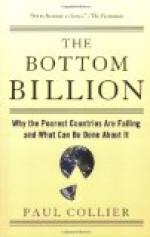from 1910. Among her publications are “In This Our World,” “Women and
Economics,” “Concerning Children,” “The Home,” “Human Work,” “The
Yellow Wallpaper,” “The Man-made World,” “Moving the Mountain,” “What
Diantha Did,” and “The Crux.” Resolve; The Lion Path.
GLAENZER, RICHARD BUTLER. Born at Paris, France,
Dec. 15, 1876. Educated
at the Hill School and Yale. Interior
decorator, poet, and essayist.
At present scenario writer at Hollywood,
California. Author of “Beggar
and King” and “Literary Snapshots.”
Man or Manikin.
GOETHE, JOHANN WOLFGANG VON. Born at Frankfort-on-the-Main,
Germany,
Aug. 28, 1749; died at Weimar, Mar. 22,
1832. Famous poet, dramatist,
and prose writer. Among his well-known
works are “The Sorrows of Young
Werther,” “Wilhelm Meister,”
“Hermann and Dorothea,” and “Faust.”
Lose the Day Loitering.
GRAY, THOMAS. Born at London, Dec. 26, 1716;
died at Cambridge, July 30,
1771. Educated at Eton and Cambridge;
went with Horace Walpole on trip
to Continent 1739-41; became professor
of modern history at Cambridge
1768, but did not teach. A man singularly
retiring and shy throughout
his life. Among his well-known poems
are “Ode on a Distant Prospect of
Eton College,” “Elegy Written
in a Country Churchyard,” “The Progress
of Poetry,” “The Bard,”
“The Fatal Sisters,” and “The Descent
of
Odin.” Opening Paradise.
GUEST, EDGAR ALBERT. Born at Birmingham, Eng.,
Aug. 20, 1881; brought to
the United States 1891; educated in grammar
and high schools of
Detroit, Mich. Connected with the
Detroit Free Press since 1895;
syndicates a daily poem in several hundred
newspapers. His books are
“A Heap o’ Livin’,”
“Just Folks,” “Over Here,”
“Path to Home,” and
“When Day is Done.” Can’t;
How Do You Tackle Your Work?; It Couldn’t
Be Done; See It Through; There Will Always
Be Something to Do; The
Things That Haven’t Been Done Before;
The World Is Against Me; To a
Young Man.
H
HENLEY, WILLIAM ERNEST. Born at Gloucester, Eng.,
Aug. 23, 1849; died
July 11, 1903. Educated at the Crypt
Grammar School at Gloucester.
Afflicted with physical infirmity, and
in hospital at Edinburgh
1874—an experience which gave
the material for his “Hospital
Sketches.” Went to London 1877;
edited London (a magazine of art)
1882-6; the Scots Observer (which
became the National Observer)
1888-93; and the New Review 1893-8.
Besides three plays which he
wrote in collaboration with Robert Louis
Stevenson, he is the author
of “Views and Reviews,” “Hospital
Sketches,” “London Voluntaries” and
“Hawthorn and Lavenden” Invictus,
5; Praise the Generous Gods for
Giving, 194; Thick Is the Darkness,
151.




